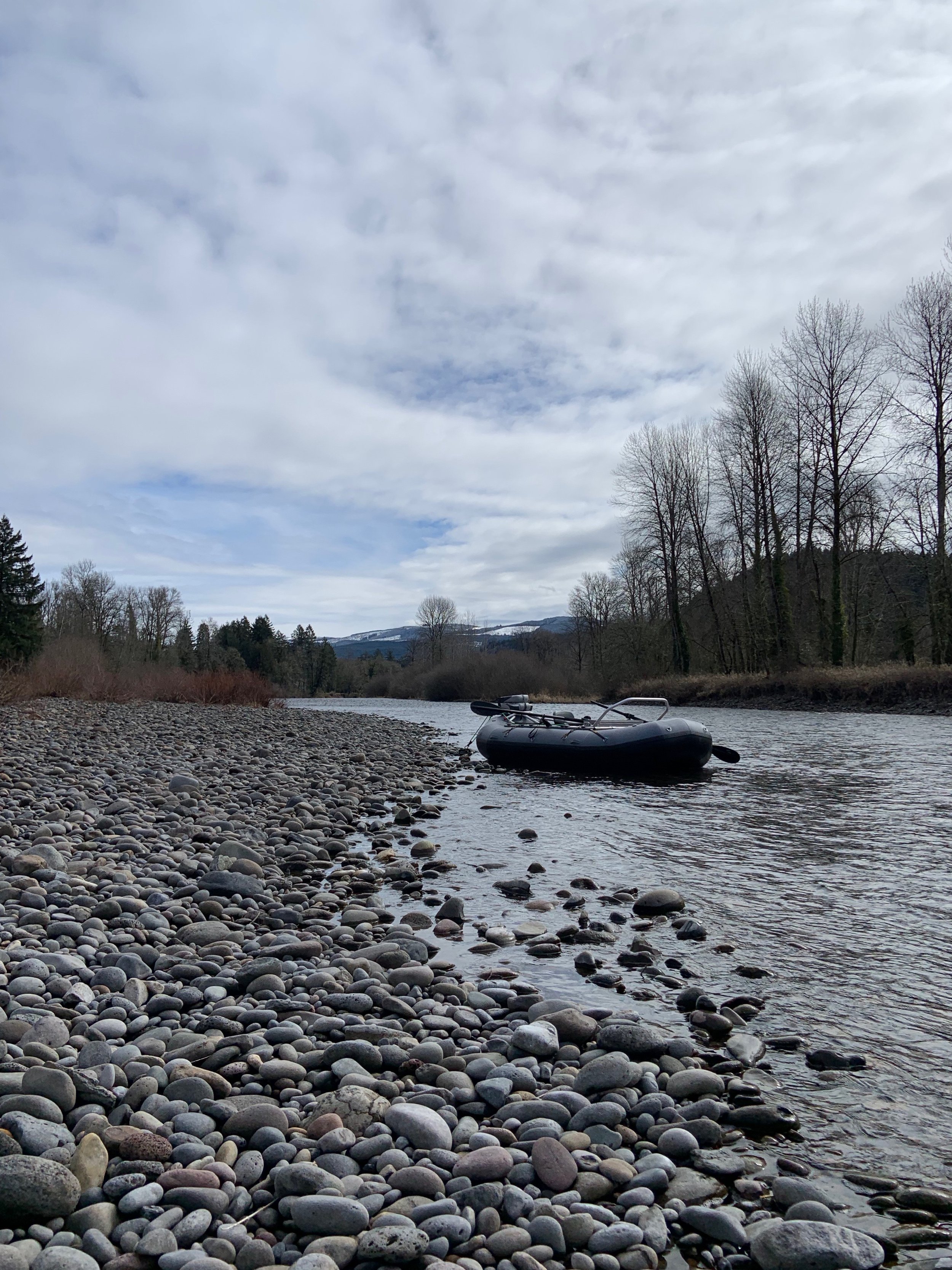McKenzie and Willamette River Fishing Report March 10, 2023
Overview:
The weather in the Willamette Valley—especially the mid-Willamette Valley—has been tempestuous over the last few weeks. Sunshine has given way to low snow to rain to thunder snow and back to sunshine. If you haven’t liked the weather, wait a minute! These swings in weather patterns, complete with spiking temps and barometers, have resulted in challenging fishing conditions. This isn’t to say going out isn’t worth the effort, but it is to say that on any given day you stand an equal chance of facing epic or daunting conditions. All things considered, we’ll take a day on the river over anything else. The key is: come prepared.
While most anglers are itching for spring, it bears remembering we are still in winter conditions. Our preferred tactics are slow swinging smaller streamers in longer, softer runs on the trout spey rod. When not swinging, we are nymphing. DEEP. Again, we’re looking for those deep tailouts and softer, slower moving water where fish can still find cover. The magic hours remain between noon and 4pm.
In terms of fly recommendations, we are sticking with a big stonefly pattern (#6 or #8) to help get you down in the deeper water, Rio’s pocket rocket in either black or olive for the swing water, and the rainbow warrior and tungsten PMD in sizes 12 or smaller.
Despite our subsurface tactics, we are coming prepared for the March Brown dry fly hatch. These hatches happen fast! When in the boat, we have a rod always rigged up and ready to go, just in case.
Winter spey day on the McKenzie
McKenzie River:
Both the upper and lower river are still cold and are running low. Fish are holding deep and not moving far at all. Focus on the softer water and structure. Another tactic has been nymphing through patches of the river where the sun has helped warm things a bit.
In addition to nymphs, don’t turn your nose up at a possible BWO hatch. We have been seeing consistent—if smaller—hatches in the late afternoon when the temps, sun, and shade align with one another. BWOs remain one of the best patterns to potentially get a decent trout on a dry fly in the winter season.
There has been some March Brown action. We are seeing this go off in between passing rain showers when the sun hits or there is a spike in the humidity.
Middle Fork Willamette River:
Middle Fork Willamette from Oakridge to Black Canyon:
Flows and temps through this section have been low, but fishable. The water clarity is excellent. These are the days where you stand the chance to have the river to yourself. Lower expectations on the number of fish hooked and appreciate the beauty of late winter.
As for flies, we’ve been using a lot of partridge and orange soft hackles. Our preferred nymph has been the Iron Sally. Here in a few weeks, we expect to start throwing some caddis pupae nymphs.
Middle Fork Willamette from Dexter Dam to Marshall Island:
Like the smaller McKenzie and Upper Middle Fork Willamette, the flows and temps in this stretch have been down. Unlike its smaller cousins, though, this is the stretch where we prefer the spey approach. Swinging streamers and 2-3 soft hackles off the tip of a two-handed rod has been incredibly productive. Our tactics through this stretch have been heavy sink tips for streamers, getting as close as we can to the bottom, and working that slow water hard.
Recommended Flies:
BWO emerger and adults: #16-12
March Brown emerger in #12 and #14.
Partridge and Orange
Soft hackle PMD #12-14
March Brown #10-12
Iron Sally #12-16
Pat’s Rubber Legs #6-8
Stone Fly 36 or #8
Duracell #12-16
Pocket Rocket #8 in black and in olive
Sculpzilla #8 in Olive and Black
Trout Spey Soft Hackle in Fiery Brown


